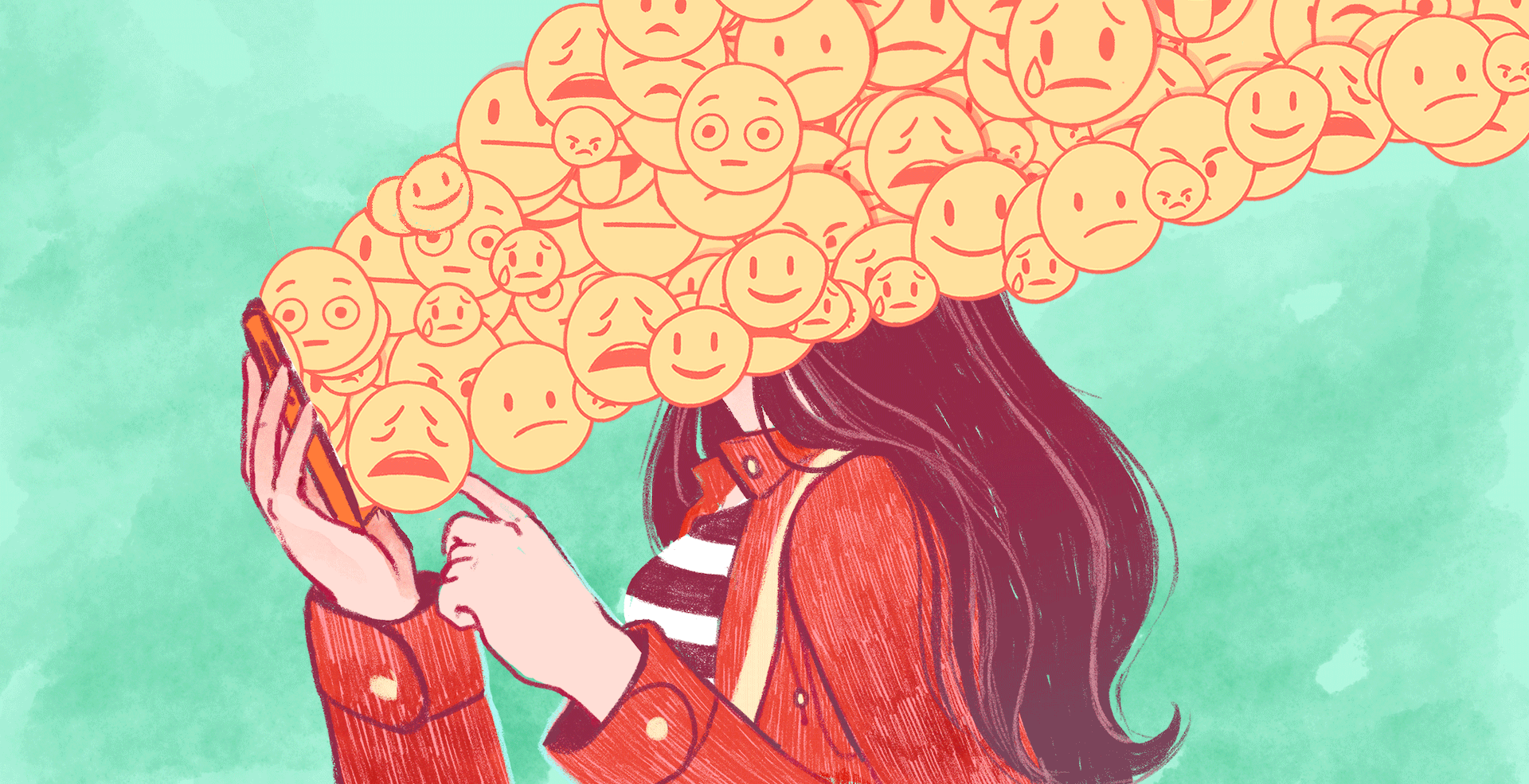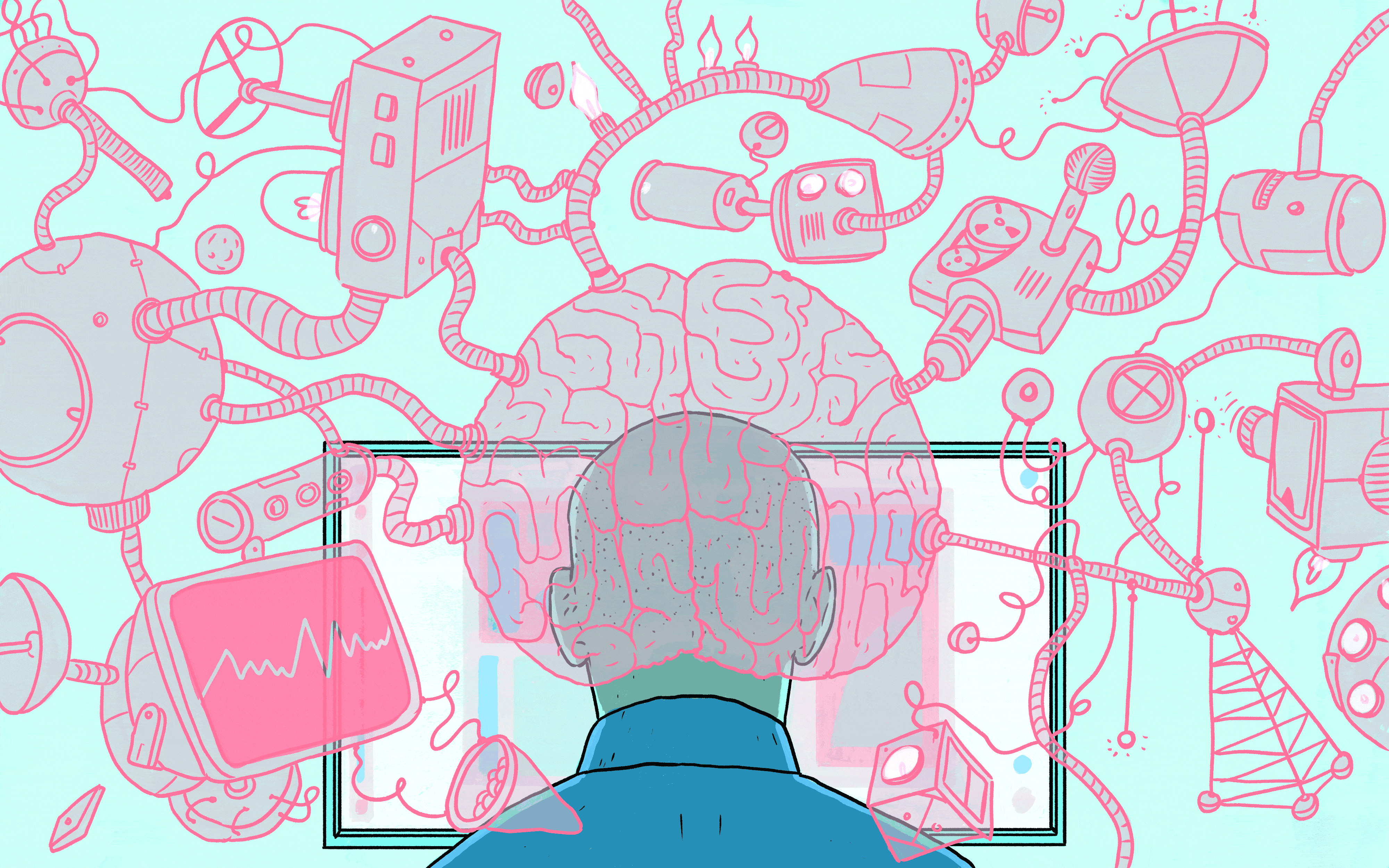No escape from the data tsunami?
Note: this post has been excerpted, expanded and adapted from my new book “Technology vs Humanity” (read more here, buy it on Amazon, buy singles or bulk orders from the publisher – use discount code GL1)
The amount of information, data and media information available to us is growing at warp speed. A massive wave of digital flab is rushing at us. Some 40% of Americans struggle with physical obesity, yet this new challenge of consuming too much information and media might be even more crippling and much harder to control.
Increasingly, we are drinking from a veritable firehose of possibilities, all the time, anywhere – and the menus usually are way too tasty, rich, and  free. Not a day goes by without yet another service offering us more updates from our ever-expanding number of friends (whatever that means, these days) or more exciting new ways of being disrupted by incessant notifications. We are drowning in a sea of apps – for dating, for divorce, for reporting potholes, for monitoring your baby’s diapers. We’re under 24/7 assault from location-based alerts and communications: beacons, digital coupons, half a billion tweets per day, 400 hours of video uploaded to YouTube every minute… the list goes on.
free. Not a day goes by without yet another service offering us more updates from our ever-expanding number of friends (whatever that means, these days) or more exciting new ways of being disrupted by incessant notifications. We are drowning in a sea of apps – for dating, for divorce, for reporting potholes, for monitoring your baby’s diapers. We’re under 24/7 assault from location-based alerts and communications: beacons, digital coupons, half a billion tweets per day, 400 hours of video uploaded to YouTube every minute… the list goes on.
A tsunami of input is dishing up abundance on the outside, yet it is also creating scarcity (a lack of meaning and purpose, and utter confusion over what is actually important) on the inside, in our hearts and minds. It seems that the more ‘information' we can ‘eat' the more we wonder what really matters. We now have endless options for digital feasting at low-to-no cost, yet at the same time we are more worried about what we could have done instead.
 Abundance outside, scarcity inside— bicycles for the mind and ‘bullets for the soul'?
Abundance outside, scarcity inside— bicycles for the mind and ‘bullets for the soul'?
The overlords of digital nourishment include Google, Facebook, LinkedIn, Twitter and its Chinese counterparts Baidu, Alibaba, Tencent and Weibo. Google’s particular genius lies in creating a seamless heaven (or should we say, a fiefdom) of cross-consumption drawn from powerful, omnipresent and sticky platforms such as Gmail, Google Maps, Google+, Google Now, YouTube, Android, Google Search, and soon, the creepily-convenient Google Home. (Disclosure: I sometimes do speaking engagements for Google)
As our minds are gaining a kind of warp speed powered by Google’s Global Brain, Facebook’s Global Friendships and LinkedIn’s Global Business/Work Network, will we get clogged up with all that digital cholesterol from these non-stop digital feasts? Will our hearts get heavy

with too many meaningless relationships and mediated connections that only exist on screens? Is this new digital obesity intentional and designed, is it more of a hidden agenda, or is it simply an unintended consequence of those platforms that enable it? One thing is certain: new and deeply immersive interfaces such as augmented and virtual reality will only magnify this challenge as the ‘eating' becomes multi-sensory.
Achieving a balanced digital diet will become exponentially harder as connectivity, devices, and applications become vastly cheaper and faster, and as interfaces to information are reinvented or shall we say “disappeared”. We willl go from reading or watching screens, to speaking to machines, to merely thought-driven direction.
Yet at some point in the not-so-distant future we may have to consider the ultimate question:
WILL WE live inside the machine, or WILL the machine live inside of us?
Cisco predicts that by 2020, 52% of the global population will be connected to the internet—around four billion human users. By then, every single piece of information, every picture, video, kernel of data, location, and utterance by every connected human is likely to be monitored, collected, connected, and refined into media, Big Data, and business intelligence. Quantum cognitive computers and AI will generate mind-boggling insights from zettabytes (one sextillion (1021) / 270 bytes) of real-time data. Nothing will remain unobserved for long. Welcome to a global panopticon?

Clearly, this could be heaven if you are a marketer, a creator of vendor of the tools that handle these tasks, an over-eager government agency, a super-geek or a longing-for-omnipotence transhumanist ready for that 2nd neocortex. Or it could be hell given the distinct possibility that all this realtime information will also make total global surveillance so much easier (and utterly tempting for those that have access to it). Not only might we end up obese with information, we may also be perpetually naked—not a pretty picture!
No longer “if we can” but “if we should”
I predict that the question of whether technology can do something will soon be replaced by the more relevant question of whether we should do what technology will afford us, and why. Just because all of this media, data and knowledge is becoming instantly and freely available, do we need to soak in it all the time? Do we really need an app to tell us where the music section is located in our favourite mall, do we really need to count our steps so that our fitness status can be updated on a social network, and will we really need to cross-check our DNA before we even go on a date? We need a lot more WHY-SAYERS and fewer JUST-DOERS.
In the end, it comes down to this: as with food, where addiction and obesity is more obvious, we'll need to find a new balance in our digital diet. We must define when, what, and how much information we consume. At what point should we reduce our intake, take the time to digest, be in the moment, or even stay hungry? Yes, there is a real business opportunity here as well: Offline is indeed the new luxury. I believe that in the next few years our digital consumption habits will transition from the “more is better” paradigm to the concept of “less is best”, with the goal of striking that careful balance between ignorant and omniscient (since neither extreme is desirable).
Read more in my book:)
See all my Digital Obesity posts
Read my FastCo-exist piece on this topic
Related images (some of these are published for the first time, btw) *re-use is allowed based on creative commons attribution non-commercial license
Are you worried about becoming ‘useless' as technology automates every aspect of what we used to call ‘work'?
Typical progress of automation to relegation, 2017
The promise of omniscience
The faustian bargains are going wrong…
We have become the content, ourselves
The HellVen of notifications
How far will you take this?
The loneliness of meeting everyone and reading everything
Amazing technology that can do the thinking for us
Say hi to the bossbot !










